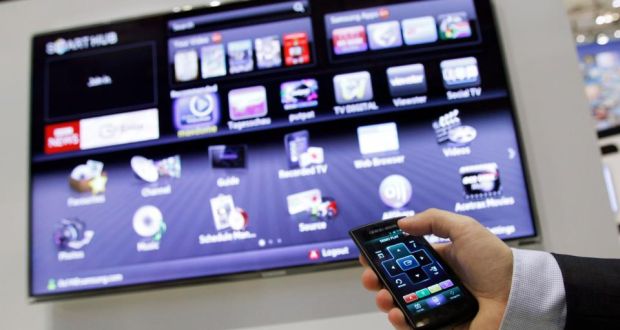The price of smart TVs has been significantly reduced in the most recent months, although this has little to do with offers or large quantities in stock of these devices. According to network security specialists, the explanation has to do with the collection of information, because like Google and other major technology companies, smart TV manufacturers are closely related to the collection of users’ consumption habits of consumption and data sale.
A recent experiment involving major smart TV manufacturers demonstrated how companies record virtually all user activity. While this data collection activity does not compromise financial details or internet searches, companies may use the collected information to create detailed user profiles, which can be very useful for advertisers willing to pay unrealistic amounts for this information.

The worst is that, although this is questionable conduct, companies are not engaging in any practice deemed illegal, as these devices have permission to collect information by default. While users can disable these default settings at any time, ideally, by default, these devices should request express user authorization to collect their data, as mentioned by experts in networks security.
Companies take small recordings and screenshots of televisions to be analyzed by something called automatic content recognition systems, a technology developed nearly ten years ago.
How does it work?
After taking these records, the smart TV converts them into dozens of pixel fragments scattered across the screen into a series of numbers, which will then be sent to the company’s servers along with the device identification numbers.
These records are then compared to a gigantic database of previously recorded content, similar to the algorithm used by the Shazam app, but applied to video content. The result of this activity is a daily record of several content screenshots which are sold by manufacturers to dozens of advertiser companies. This technology is found in any smart TV, as the experts in network security.
This should be a huge scandal; however, the manufacturers of these devices argue that they are not incurring a single fault with any data protection law, as users authorize to subject themselves to this monitoring activity. In addition, the companies argue that due to the shared use of these devices it is impossible to collect information in order to define unique user profiles, although this is only a pretext, because with the technology and data extraction methods available today this is not an impossible task.
According to the network security specialists from the International Institute of Cyber Security (IICS), data extraction is carried out by companies specifically focused on this task, which link the consumption data of a smart TV with the activity via smartphones, tablets or computer equipment. To make matters worse, many people still ignore the importance of safeguarding their personal information, making the work of these companies easier.

He is a well-known expert in mobile security and malware analysis. He studied Computer Science at NYU and started working as a cyber security analyst in 2003. He is actively working as an anti-malware expert. He also worked for security companies like Kaspersky Lab. His everyday job includes researching about new malware and cyber security incidents. Also he has deep level of knowledge in mobile security and mobile vulnerabilities.











